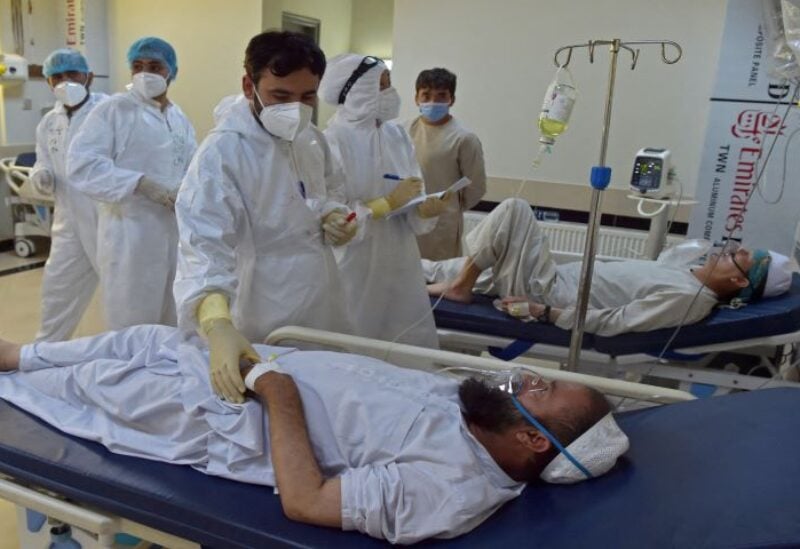
Afghan hospitals
When Latifa Haidari finally arrived in Kabul two weeks ago, her nine-month-old son Loqman was already severely malnourished and dehydrated. Doctors told her it had almost been too late.
Loqman had been sick for several weeks, but with no adequate health facility available and the powdered milk Haidari usually purchased out of stock, his health quickly deteriorated. His body became frail and dehydrated.
“I travelled to Kabul to try to save his life,” the 32-year-old mother of seven told The National. She had barely been able to pay the 700 Afghani [$8] bus fare from her native Baghlan province – an eight-hour drive through the Hindu Kush and over the Salang Mountain Pass – to Kabul.
Haidari had come alone, which is uncommon in Afghanistan, but paying for an additional bus ticket for her husband or another relative had been impossible, so she decided to take the risk to try to save her son’s life.
Since the Taliban’s military takeover in August, Afghanistan has been thrown into a deep economic and humanitarian crisis as almost $10 billion in bank funds – most of them private assets – remain frozen and the majority of aid has been put on hold.
The hardline group has since been trying to set up a functioning government, but it lacks international recognition and there are internal divides within the group.
Zahaba, 6 months, is being treated for malnutrition at the Kabul hopsital. Stefanie Glinski for The National
Throughout the country, 2,000 health facilities are now in the process of closing or have already shut their doors as money has dried up, according to the Red Cross, leaving millions of people without access to doctors and – struck by poverty – unable to travel long distances to seek health care.
Few signs of improvement are visible as the international community is in no rush to formally recognise the ‘Islamic Emirate’s’ government. Amid increasing inflation, widespread unemployment and few funds available within the country, desperation is growing and fears are rising that Afghanistan could once again – as it did during the 1996-2001 Taliban rule – become a failed state.
Aid groups now warn that more than seven million children are at risk of hunger throughout the country.